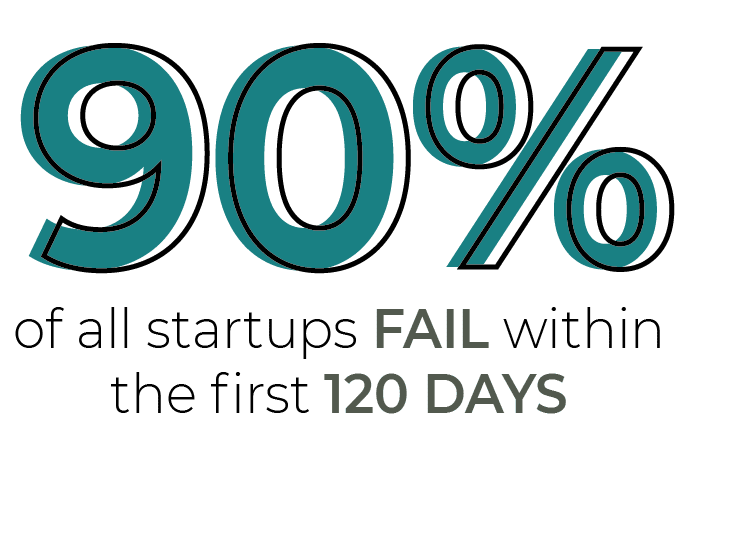Ben Legg
More than 16 million Brits – half of the UK working population – had some form of side hustle in 2019 which contributed around £72 billion to the UK economy. This represents average earnings of £4,500 per person, but of course our passions often lead us forward before it is reflected in our bank balance.

For those whose primary reason is passion – monetary value is secondary to the joy that their side hustle brings.
This type of side hustle can be created by writing a successful blog, being an online influencer, reviewing for magazines, or making and selling face masks on Etsy.
This is possible because their main gigs (or other sources of income) sustain them financially, so their side hustle doesn’t have to be wildly lucrative to begin with. The benefits are found in learning new skills, creating beautiful things, earning respect, networking or just a change from the routine.
For those whose focus is financial, the side hustle is primarily focused on earning extra income.
These side hustles can include things like tutoring kids to pass exams, providing industry insights to investors, filing tax returns for startups, doing research for clients via Upwork, or dog walking – we have found thousands of ways to make extra money. There may be some enjoyment involved, but the primary purpose is generating more income.
Turning A Side Hustle Into A Career
With permanent roles in short supply, working remotely becoming the norm, and flexible working hours in demand, many people are asking whether they can turn their side hustle into a portfolio career.
If you are one of those people, the key things to consider are
- your earnings rate,
- the volume of available work,
- long term sustainability
- and planning your finances well.
You need to look – critically – at the viability of your side hustle as a money making enterprise. If it takes you a lot of time to make minimal income, you either need to drop the idea, or find a way to increase your earnings rate without sacrificing your passion.
For instance, one of our team realised his side hustle of reviewing cycling equipment was paying him less than minimum wage per hour worked, so he pivoted to teaching companies about cycling equipment and road safety, which significantly increased his earnings.
Rather than looking at exactly what you’re currently doing and trying to scale it, it’s worth looking at the world around what you’re doing and identifying where opportunities that use your skills or knowledge lie.
For instance if you currently make and sell face masks on etsy with a basic design and nice material, you can probably sell them for £5-7.
However, can you target a niche and start making – say – personalised masks, masks for a particular segment of people, or masks with specific qualities, such as environmentally friendly masks? These could sell for £20 and above. If you are a lawyer, rather than offer ‘general legal advice’ can you specialise in – say – helping startups raise money? In most cases, hourly earnings go up as your products or services become more specialised.
Earning £1,000 per wedding as a photographer won’t support you if you can only win a handful of weddings per year. So you need to ask yourself – is the volume there, and how will I capture enough work?
Continuing with the wedding photographer example, you could grow volume by

partnering with wedding planners and venues to get referrals;

by winning awards;

by optimising your Google presence and ads,

through social media promotion;

or maybe using your own unique lead generation skills that you want to remain secret.
The key point is – you need to take time to accurately estimate the market size, and pragmatically work out how you will win enough volume.
Making face masks on etsy was a great idea at the beginning of lockdown, but now there are hundreds of sellers. Being an influencer on Instagram was great a few years ago, but now there are tens of thousands of them.

There are many ways to build a sustainable portfolio career.
- You can win longer term contracts, such as board roles or part-time (but long term) contracts.
- You can build a personal brand that enables you to win more business or charge a higher rate.
- You can dazzle your clients, so that you become their ‘go to’ person for your particular skills and they stop shopping around.
- You can just keep learning and innovating, to always have ‘advanced skills’ and avoid being commoditised.
Again – this is up to you, but don’t be naive.
Embarking on a full time portfolio career and dropping your day job can be risky: 90% of all startups fail within their first 120 days.

You need to maximise your chances of success, and also make a plan to systematically and rapidly turn your side hustle into a portfolio of work that meets your earnings requirements. To increase your chances of success, it is recommended to consult a portfolio career coach that can help you with transition to a portfolio career.

We all hear the success stories of someone who branched out on their own and made a fortune immediately.
And even then, it typically took them 6-12 months to really optimise their portfolios for workload, earnings, enjoyment and sustainability – and they still need to keep reinventing themselves to stay ahead.
We asked the successful portfolio career professionals what advice they would give to those thinking about taking the plunge.
In addition to the four areas outlined above, they advised others to ensure you have either savings or a backup plan, in case things take longer than expected.
Also, to find great mentors to turn to for advice – a portfolio career can get a bit lonely. Hence, finding a Portfolio career coach can save a tonne of your time and effort and provide guidance, insights and feedback on advancing your portfolio career.

Think this sounds like the right path for you? Come along to our monthly Community Welcome Call for new members to find out what a portfolio career could look like and how The Portfolio Collective can help you take those first steps towards professional success – and don’t forget to connect with our community!




